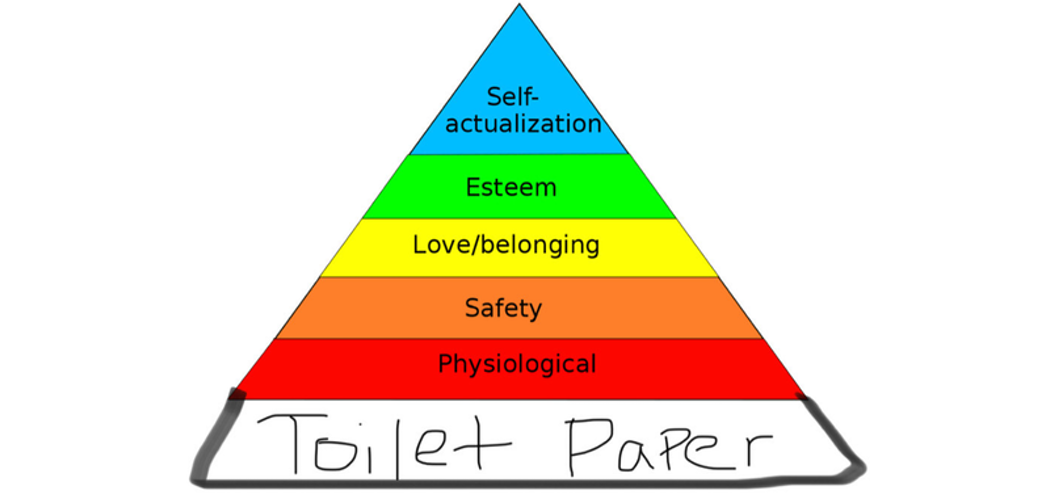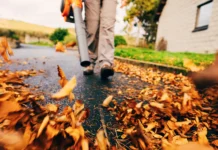Why are we so afraid of COVID-19? It’s “the mix of miscalibrated emotion and limited knowledge” explains
How deadly is it? Estimates range from 0.5% to 4% (the seasonal flu is .1%) and the only way to narrow this down is to count the number of fatalities and divide it by how many have COVID-19. Without widespread testing, it is impossible to know the denominator of this equation.
Other questions we don’t have answers to:
Will the virus peter out during the summer months?
How soon will we have a vaccine?
How many people are asymptomatic?
Why are children less affected?
Unanswerable questions coupled with conflicting information, especially from government officials and experts, further fuels fear. One moment, you’re told it’s no big deal and the next, schools are shutting down. Mixed messages are confusing and amplify uncertainty. It’s no wonder people are panicking.
Here is what we do know. There are actions you can take to help you feel more in control even when the world feels like it is spinning out of control.
1. Check Your Screentime
Are you compulsively checking the CDC website for updates? Did you double your Twitter screen time in the past week? If the answer is yes, it’s highly likely that this behavior is stoking your fears and making you feel even more vulnerable. Think of your attention as a flashlight. What do you want to shine it on?
2. Skip Contagion
This is not the moment to watch movies like Outbreak or Contagion.
3. Do You Really Need That Lipstick?
When germs abound, vanity kicks in. A study found that when people worry about catching a disease, they tend to focus more on how they look and spend more money on their physical appearance. It’s the “behavioral immune system” signaling to others, “Hey, I’m healthy.”
4. Talk About Something Else
You might think that the best way to solve a problem is to think it through but when information is lacking and fear is driving emotion, this can backfire. There is no benefit to ruminating about the spread of coronavirus. Nor is it helpful to make it a topic of every conversation you have with others. Discovering your friend bought a year’s supply of toilet paper at Costco might prompt you to do the same but it won’t give you peace of mind.
5. Don’t Eat Your Feelings
People tend to eat more and mindlessly when they’re stressed. Don’t let anxiety dictate your diet. Actively decide to make healthy choices that fortify you during this vulnerable period. Research from Yale University suggests that a protein-based diet might help fight the seasonal flu. Rats who were fed the keto diet (high in fat and protein, low in carbs) were better equipped to combat and overcome the influenza virus than rats who were fed the equivalent of Wonder bread and spaghetti.
6. Get Some Fresh Air
Consider skipping the gym and exercising outdoors instead. Hop off the subway before your stop to minimize potential exposure and to put a spring in your step. Spending time outdoors is good for your immunity and your mood. People who report more positive emotions are less likely to catch a cold. Even when they do catch a cold, they don’t feel as bad as the “Debbie Downers.”
7. Snooze
This is not the time to stay up late binge-watching Netflix. People who don’t sleep enough are more likely to get sick after being exposed to an infection. During sleep, the immune system releases proteins called cytokines which protect us against bacteria and viruses. You’ll also feel less stressed when you’re well-rested.
8. The Basics To Keep Yourself and Others Healthy:
• Wash your hands often with soap and water for at least 20 seconds, especially after blowing your nose, coughing, or sneezing; going to the bathroom; before eating or preparing food; upon arrival anywhere.
• Avoid touching your eyes, nose, and mouth.
• Stay home when you are sick.
• Cover your cough or sneeze with a tissue, then throw the tissue in the trash.
I appreciated Dr. Abdu Sharkawy’s take on how to navigate this challenge:
I implore you all. Temper fear with reason, panic with patience and uncertainty with education. We have an opportunity to learn a great deal about health hygiene and limiting the spread of innumerable transmissible diseases in our society. Let’s meet this challenge together in the best spirit of compassion for others, patience, and above all, an unfailing effort to seek truth, facts and knowledge as opposed to conjecture, speculation and catastrophizing. Facts not fear. Clean hands. Open hearts. Our children will thank us for it.
I wish you all the best,
Dr. Samantha Boardman






